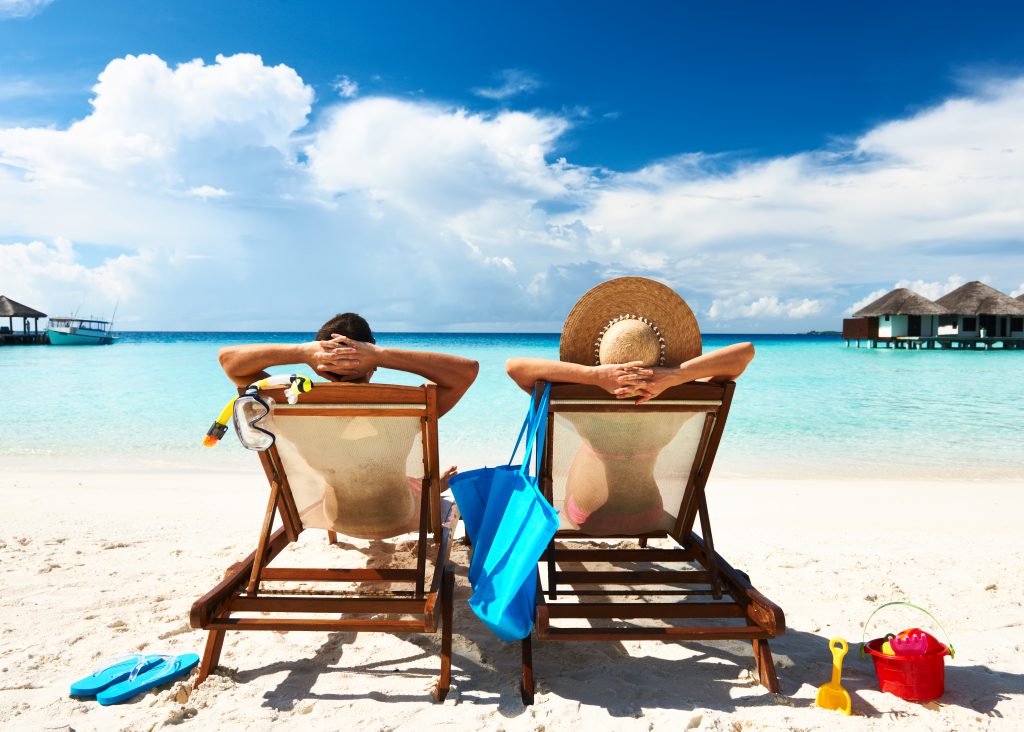Want to Excel at Work? Take a Vacation

The science is clear: Taking a break is a key part of getting ahead at work. Just as top athletes need to schedule recovery breaks in their training, employees need time to mentally recharge in order to stay sharp and engaged on the job.
In an article published in Current Directions in Psychological Science, Sabine Sonnentag of the University of Mannheim comprehensively reviewed the current research on recovering from work. Her analysis of dozens of studies shows that taking a break from work—both mentally and physically—is essential to maintaining top performance.
“Research in organizational psychology and related fields has identified recovery from work as an important mechanism that explains how employees can stay energetic, engaged, and healthy, even when facing high job demands,” Sonnentag writes.
Previous research has shown that vacation time is essential for reducing stress and even maintaining cardiovascular health. However, as many people know all too well, the relaxing effects of a vacation don’t last.
Working with Jana Kühnel of the University of Ulm, Sonnentag conducted a study to find out just how long the positive effects of a vacation last once we return to the daily grind. The researchers surveyed 131 teachers before and after a two week break from school.
First, they had the teachers complete a measure of exhaustion—how emotionally drained and burned out they felt the day before heading out for vacation. The teachers then completed weekly surveys on how engaged they were with their work, relaxed, and stressed they felt four weeks after returning from vacation.
As predicted, the results indicated that vacationing had a beneficial effect. Not only did the teachers report feeling less tired and emotionally burned out, they also reported feeling more engaged and positive about their work.
But, these benefits were fairly short-lived, particularly for those teachers who came back to especially difficult students and heavy workloads. Within four weeks, the vacation’s positive benefits had faded and teachers were back to their initial levels of stress and emotional exhaustion.
Because the recharging effects of a vacation seem to dissipate fairly quickly, it’s important to try to make time to recharge on a regular basis—particularly when work is very demanding.
“Organizations should take care to see that individuals have sufficient recovery time at their disposal, for example, by implementing regulations that restrict skipping vacation or exchanging days of one’s vacation for financial rewards because vacation can serve as a powerful instrument to lessen emotional exhaustion and to foster work engagement,” Kühnel and Sonnentag conclude in the Journal of Organizational Behavior.
Not only are vacations necessary for recharging our mental batteries, there’s also mounting evidence that spending money on experiences tend to bring us more enduring pleasure compared to splurging on material goods.
New research published in Psychological Science shows you may be happier in the long run for taking a cruise to the Bahamas rather than working overtime to pay for a bigger flat screen TV.
In one study, psychological scientists Amit Kumar and Thomas Gilovich of Cornell University and Matthew Killingsworth of University of California, San Francisco tracked moment-to-moment data from 2,266 adults as part of a large-scale experience-sampling project. Participants received notifications from the researchers on their iPhones at random times throughout the day.
Comparing data from individual participants across different times, Gilovich and colleagues found that people were happier at times when they were thinking about a future experiential purchase, like a ski trip, than they were at times when they weren’t thinking about a purchase at all. There was no relative increase or decrease in happiness when people were thinking about a future material purchase.
“Our research is also important to society because it suggests that overall well-being can be advanced by providing an infrastructure that affords experiences — such as parks, trails, beaches — as much as it does material consumption,” says Gilovich.
References
Kühnel, J., & Sonnentag, S. (2011). How long do you benefit from vacation? A closer look at the fade‐out of vacation effects. Journal of Organizational Behavior, 32(1), 125-143. doi: 10.1002/job.699
Kumar, A., Killingsworth, M. A., & Gilovich, T. (2014). Waiting for Merlot anticipatory consumption of experiential and material purchases. Psychological Science, 25(10). 1924-1931. doi: 10.1177/0956797614546556
Sonnentag, S., & Fritz, C. (2015). Recovery from job stress: The stressor‐detachment model as an integrative framework. Journal of Organizational Behavior, 36(S1), S72-S103. doi: 10.1002/job.1924
Sonnentag, S. (2012). Psychological Detachment From Work During Leisure Time The Benefits of Mentally Disengaging From Work. Current Directions in Psychological Science, 21(2), 114-118. doi: 10.1177/0963721411434979





Comments
This is very interesting. Also, it’s relevant to my field, teaching. Studies are worth replicating.
APS regularly opens certain online articles for discussion on our website. Effective February 2021, you must be a logged-in APS member to post comments. By posting a comment, you agree to our Community Guidelines and the display of your profile information, including your name and affiliation. Any opinions, findings, conclusions, or recommendations present in article comments are those of the writers and do not necessarily reflect the views of APS or the article’s author. For more information, please see our Community Guidelines.
Please login with your APS account to comment.